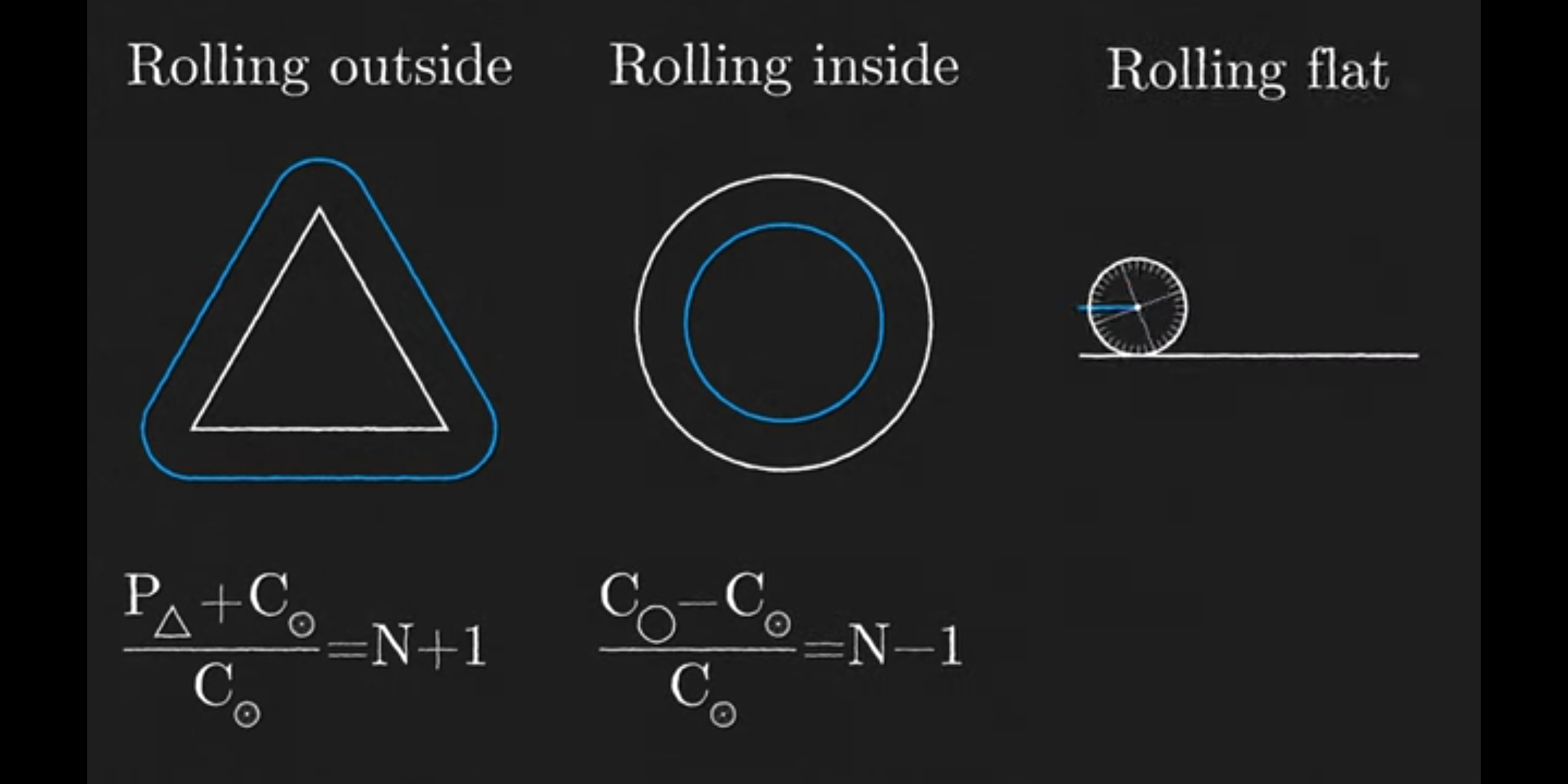this post was submitted on 01 Dec 2023
171 points (89.0% liked)
Videos
14826 readers
265 users here now
For sharing interesting videos from around the Web!
Rules
- Videos only
- Follow the global Mastodon.World rules and the Lemmy.World TOS while posting and commenting.
- Don't be a jerk
- No advertising
- No political videos, post those to [email protected] instead.
- Avoid clickbait titles. (Tip: Use dearrow)
- Link directly to the video source and not for example an embedded video in an article or tracked sharing link.
- Duplicate posts may be removed
Note: bans may apply to both [email protected] and [email protected]
founded 2 years ago
MODERATORS
you are viewing a single comment's thread
view the rest of the comments
view the rest of the comments
Add the radius together. If the circle is inside. B-A 3-1 = 2.
Does not compute
It’s in the video.
A circle with a radius of 2 and a circle with a radius of 3 would be 5 rotations.
First you said add the radii together, then you gave an example subtracting them, but either way this is incorrect. You divide the larger radius by the smaller radius and add 1
Not quite. With radius 2 and 3 circles, the outer circle would take 2.5 rotations to complete the revolution. You have to set the first circle radius to 1 (divide both radii by the lesser) and then add the radii to calculate the relative circumference of the circle drawn by the motion of the center of the outer circle, so the answer would be calculated like:
2/2 + 3/2 = 5/2 = 2.5
…?
Its not even remotely what you said. Its A/B+1 or A/B-1 for an interior loop.
edit: I didn't need to be this aggressive. It's VAGUELY what you said. its (A+B)/B. You have missed the /B part.. which is A/B + 1.
in the example you gave, for radius 2 and 3... it would be 3/2 + 1 or 2.5. Not 5 (off by a factor of 2 because /B)
They explain multiple ways to do it in the video. A circle with a radius of 2 and a circle with a radius of 3 would be 5.
No they don't
N is the ratio of the circles and its just +1 or -1 depending on outer or inner.